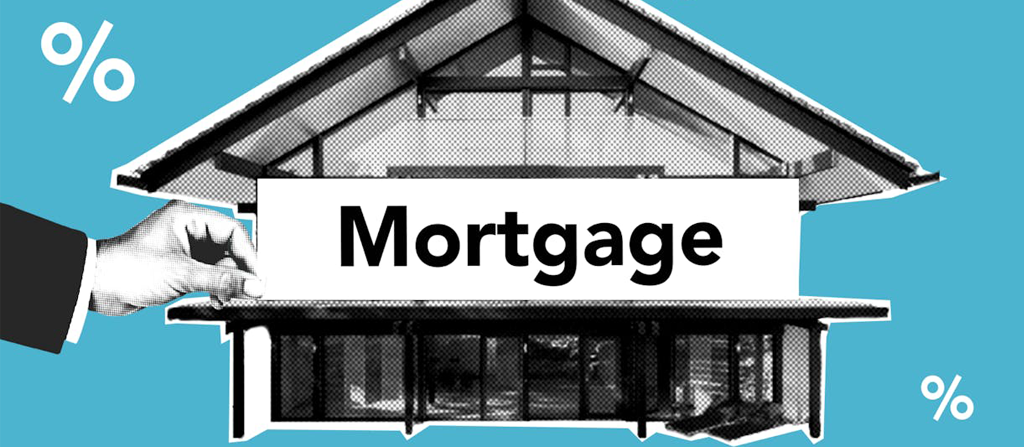
Almost everyone needs a mortgage to buy a home. Mortgage loans are not one-size-fits-all. So, it is vital to understand your options and determine which one is best for your financial situation.
Your journey to homeownership is an exciting yet complex process. An array of mortgage loans cater to different financial needs and preferences. After determining how much home your finances can handle, it is time to select a mortgage.
This guide aims to empower you with the knowledge you need to decide which mortgage to choose. Your dream home is within reach, and understanding the right mortgage will enable you to realize your dream

Conventional Mortgage Loans
These are mortgage loans not backed by a government agency and offered by banks, credit unions, and other lenders. A conventional mortgage loan may be a good option if you have a strong credit history.
Fixed Rate Mortgages (FRM)
- Maintains the same interest rate for the life of your loan. Thus, you are protected from interest rate increases in the housing market.
- Monthly mortgage payments (principal amount and interest) remain the same for the duration of the loan term.
- Typically available in 15, 20, or 30-year terms.
- It allows you to budget your finances easily because of the predictability of monthly mortgage payments.
- Interest rates are higher than initial rates on adjustable-rate loans.
- If mortgage loan rates drop, you must refinance for the lower rate.
A fixed-rate mortgage is your best choice if:
- You plan to stay in your home for about seven years or more and want to avoid potential changes to your monthly repayments.
- You want the same fixed principal and interest payment for your loan term.
- You think mortgage rates will increase in the next few years, and you want to keep your current rate.
Adjustable Rate Mortgage (ARM)
- Interest rate changes over time.
- Lower fixed introductory rate (lower than a fixed-rate loan) for a set period, typically for the first few years.
- A popular option when long-term fixed rates are high.
- Interest rate changes (increases or decreases) at predetermined intervals after the introductory period for the remainder of the loan term.
- Mortgage loan rates go up or down depending on economic conditions, usually every six months, until you are fully paid. Thus, your monthly payment varies, as well.
- You could pay a lower monthly mortgage if prevailing interest rates fall.
- Most ARMs have rate caps. Thus, interest rates will not exceed a specific number for the duration of your loan.
- Generally, they are more complicated than fixed-rate mortgages because of the varying rates of mortgages.
- You have an ongoing risk of having higher monthly payments.
- It is more challenging to plan your budget because interest rates change.
An adjustable-rate mortgage is your best option if:
- You plan to remain in your home for a short time, like five years or less, or move before the end of the introductory fixed-rate period. Thus, you are not concerned with any possible rate increases.
- You want to avail of lower interest than a fixed-rate mortgage for a few years.
Before choosing the best option, compare mortgage loan rates for fixed-rate and adjustable-rate mortgages over the long term.

Government-Guaranteed Mortgages
Three government agencies guarantee certain types of mortgage loans so homeownership can be accessible to a broader population. A specific government entity backs each type of loan.
Federal Housing Loans (FHA)
- FHA mortgage is not issued by the government but insured by the Federal
An FHA mortgage is your best option if: - Your finances can only afford a small down payment.
- Although the minimum FICO score is 580 -most lenders will have their overlays that are set over and above FHA guidelines. The minimum FICO score for Greater Alliance is 620 like most lenders.
- In some cases, FHA DTI will go up to 50%.
- If you put 20% or more down, the PMI lasts 11 years. You will pay PMI regardless of the down payment.
- If you put less than 20% down-PMI is for the life of the loan.
- FHA has a one-time upfront premium of 1.75% that can be paid out of pocket at closing or added to the loan amount and monthly payment.
- You have a low credit score.
- You are a first-time home buyer.
- You want a fixed-rate mortgage for 15 or 30 years.
- You have a high debt-to-income ratio.
United States Department of Agriculture (USDA) Loans
- Guaranteed by the U.S. Department of Agriculture.
- Help low-to-moderate income homebuyers in chosen rural and suburban areas.
- Applicable for primary residences of qualified applicants.
- Does not set a minimum credit score.
- Down payment can be as low as 0%.
- Available from banks, credit unions, and other lenders, and also directly from the USDA for some low-income applicants.
- Homebuyers need to meet strict income limits specific to the locality where they are buying a home.
- You must pay PMI if your down payment is less than 20%.
A USDA mortgage loan is your best choice if:
- You do not qualify for mortgage loans from other sources because of a subpar credit history.
- You are from low-to mid-income households wanting to buy a home in the rural areas.
Department of Veterans Affairs (VA) Loans
- Guaranteed by the U.S. Department of Veterans Affairs.
- The home being purchased must be your primary home.
- Applicable for active duty or veterans of the U.S. Armed Forces or their family members.
- A VA mortgage has no loan amount limit, but the VA will guarantee only a specific amount of your loan.
- There is no down payment as long as the home you are buying is within the VA home loan limit.
- Putting a down payment depends on the loan amount the VA will guarantee.
- Does not require a PMI.
- Available from banks, credit unions, and other lenders.
A VA mortgage loan might be best if:
- ou are an active duty, a veteran, or a qualified U.S. Armed Forces family member.
- You can only afford a low down payment.
- You must find a way to afford the additional cost of a PMI.
Before looking for a home, compare mortgage offerings from multiple lenders.
Final Thoughts
The right mortgage loan is a crucial aspect of your home-buying process. Now that you know the basics of the different types of mortgage loans, you can determine which matches your financial situation.
You can also talk to a mortgage professional, and together, you can find the best mortgage loan for your dream home.
If you need help evaluating the best mortgage loan for your financial circumstances, our team is ready and eager to help! Contact Greater Alliance Federal Credit Union and get started on moving to your new home!
